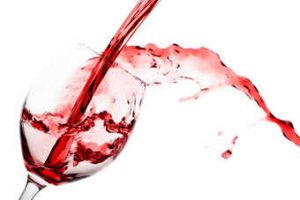
Constellation Brands is paying a heavy price to offload the bulk of its Australian wine business and its move marks a low-point for the global wine industry.
The world is awash with unloved wine, it seems. Not only does the industry serially produce millions of bottles more than are consumed around the globe, but the ‘for sale’ signs are going up in every direction.
Just before Christmas, Constellation announced that it is offloading 80% of its Australian, UK and South African wine operations. Less than a week earlier, Brown-Forman announced that it is considering selling its Fetzer wine brand. Meanwhile, Foster’s Group has let it be known that its own Australian wine unit – or what is left of it following some seismic restructuring – can be had at the right price.
Meanwhile, French wine and spirits giant Pernod Ricard has spent the last 12 months pruning its wine arm, albeit to a lesser degree, ditching Lindauer in New Zealand and several assets in Spain. In Europe more generally, the European Commission is urging winemakers to rip out their vines in return for financial compensation. Even Champagne has not escaped the guillotine, with Remy Cointreau intent on selling its Piper-Heidsieck and Charles Heidsieck brands.
It has become commonplace to depict the winery as a place where money can be filtered from fools. As one industry veteran told just-drinks today (5 January): «People fall in love with the wine industry because they think it’s romantic, but it’s bloody hard work to make money.»
Many of the drinks industry’s big hitters are losing faith in wine, faced by wild exchange rates, promiscuous and bargain-savvy consumers and the ongoing saga of global overproduction. Companies cling notionally to consumer education, but cynicism has long since taken root in boardrooms. Spirits, by comparison, are a much stronger prospect in the eyes of many drinks executives.
Of those scaling back operations, Constellation deserves a special mention. After all, when the world’s largest winemaker sells off most of its overseas business, it’s time to take note.
One of the most worrying things about the Constellation deal, from a financial point of view, is the value. The group has agreed to sell «virtually all» of its Australian, UK and South African brands, wineries, facilities, vineyards and its 50% interest in UK-based Matthew Clark to CHAMP Private Equity for just AUD290m (US$290.3m).
Even when you consider that Constellation will retain a 20% stake in the business, it still looks cheap. Constellation paid AUD1.85bn to acquire Australia’s BRL Hardy in early 2003, and some analysts considered at the time that Hardy shareholders should have asked for more.
Whichever way you look at it, that’s a fairly horrific return on investment for Constellation. Other wine companies will surely have noted that the deep discounting we are accustomed to in supermarket wine aisles looks to have spread to wine producers themselves.
What hope, then, for the likes of Foster’s Group and Brown-Forman, even Remy Cointreau, on the wine transfer market in 2011? It could all depend on how low these companies are prepared to go.
The wine market is crying out for new ideas, but many at the top appear more keen to look elsewhere. The painful period of retrenchment shows little sign of abating in 2011.
